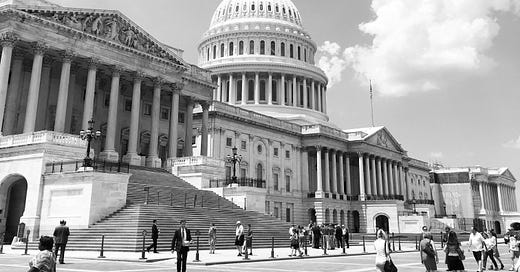The Ron DeSantis I know
I spent six years in Congress with Florida's governor. Here's what I learned.
Probably the worst kept secret in all of politics was that Florida Governor Ron DeSantis would run for president of the United States. I served with Ron in the U.S. House of Representatives for about six years, and we were pretty close. Not best friends close but certainly good friends.
When Ron entered Congress in 2013, he had the peculiar characteristic of being an antiestablishment hawk—one who had served as a naval officer at Gitmo, no less. Most of the war hawks in Congress were strongly aligned with establishment figures like Lindsey Graham and John McCain, but Ron always had disdain for them and saw them as part of the problem.
He’s exceptionally smart and disciplined, so it’s possible he simply understood better than most people that political success often has more to do with who your friends and enemies are than with how you vote. The Tea Party movement was still in full swing, and an up-and-coming Republican didn’t want to be associated with Graham or McCain, even if that person quietly voted with them on some of the biggest items.
It’s also possible Ron viewed fiscal issues as being of paramount importance, which made him feel more at home among Tea Party conservatives. Despite being a hawk, he wasn’t keen on nation-building. He viewed military force as a potential means to push U.S. interests but not as an effective tool to transform foreign countries into liberal democracies.
During my time in Congress, as chairman of the House Liberty Caucus (not to be confused with a separate, more infamous group I co-founded, the House Freedom Caucus—a story to be told a different time), I kept a private scorecard of my colleagues’ votes. Layered on top of my personal relationships with them, I developed a strong sense of who they are and what motivates them.
In our first few years together, Ron and I were on the same side of many issues, but he was among the least libertarian—and least likely to be persuaded—of the persons I considered my best allies. He was most reliable on basic economic matters, like spending bills, and least reliable on subjects like war and civil liberties, including surveillance and privacy.
Recently, I looked back on our more than one hundred email exchanges from 2013 through our first couple years in the House Freedom Caucus. It was both a fascinating and sobering experience.
Keep reading with a 7-day free trial
Subscribe to Justin Amash to keep reading this post and get 7 days of free access to the full post archives.




